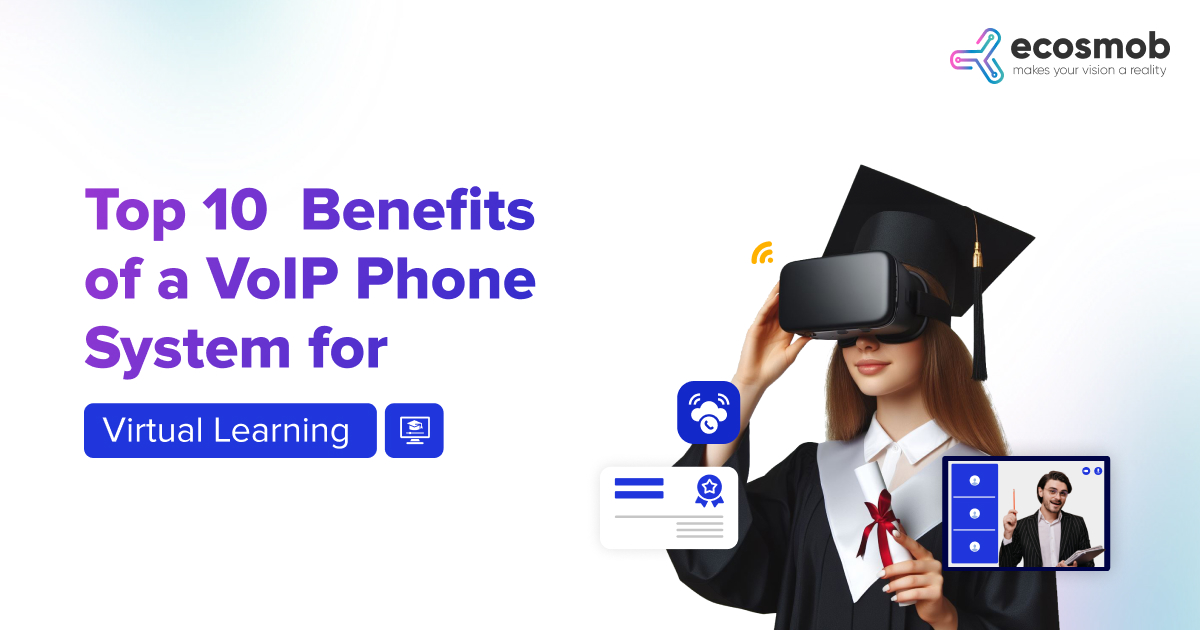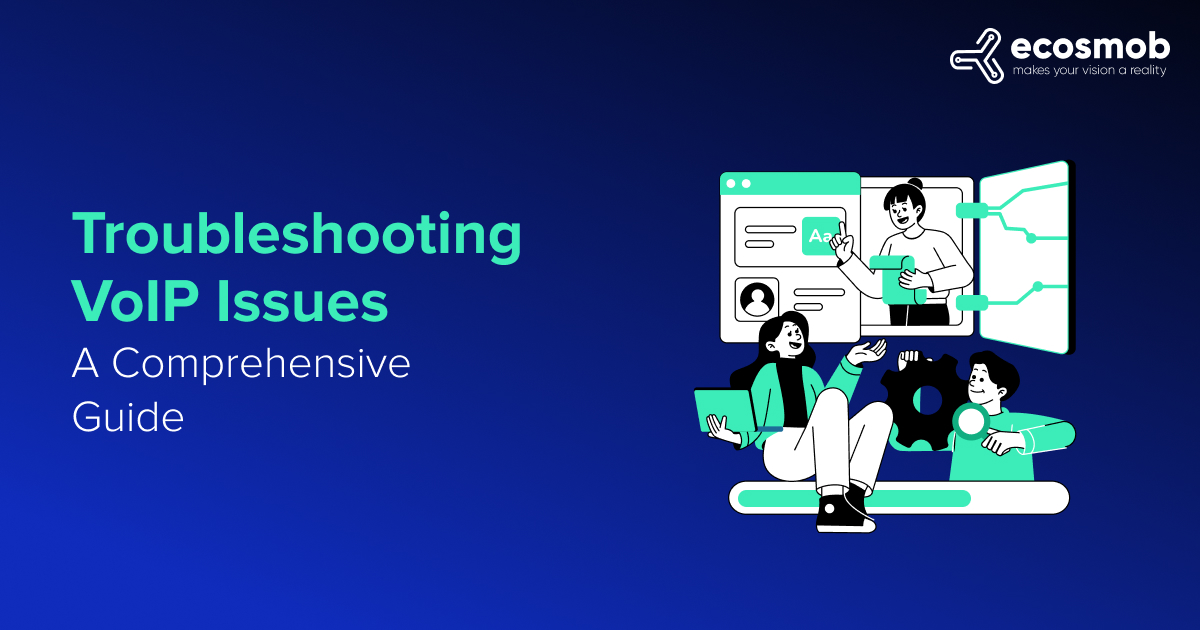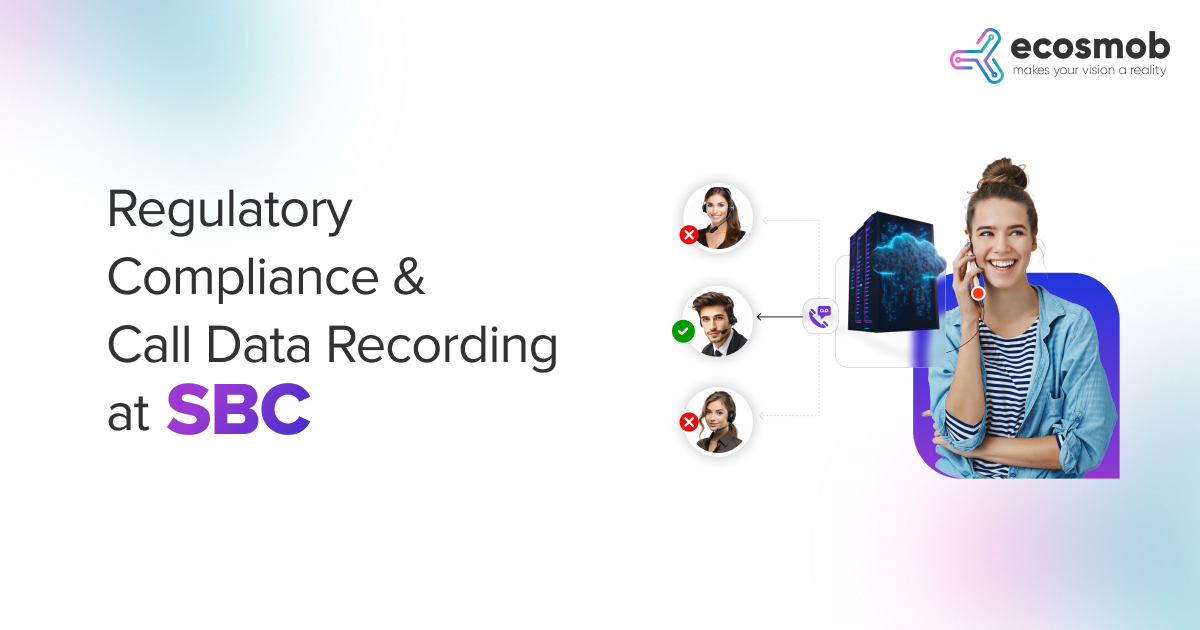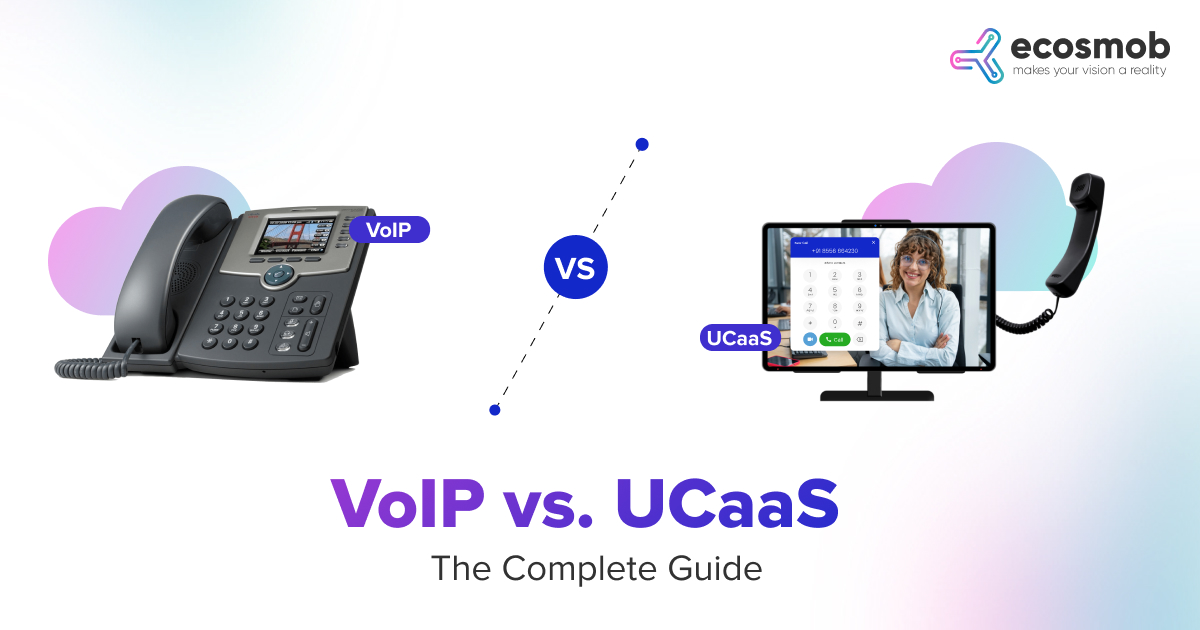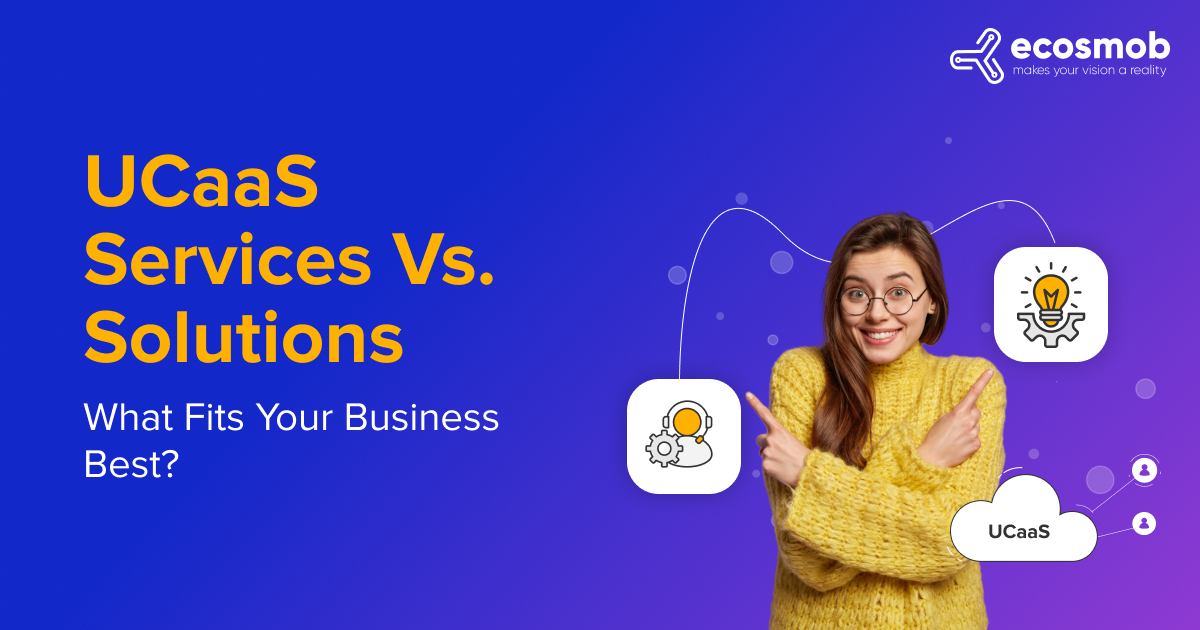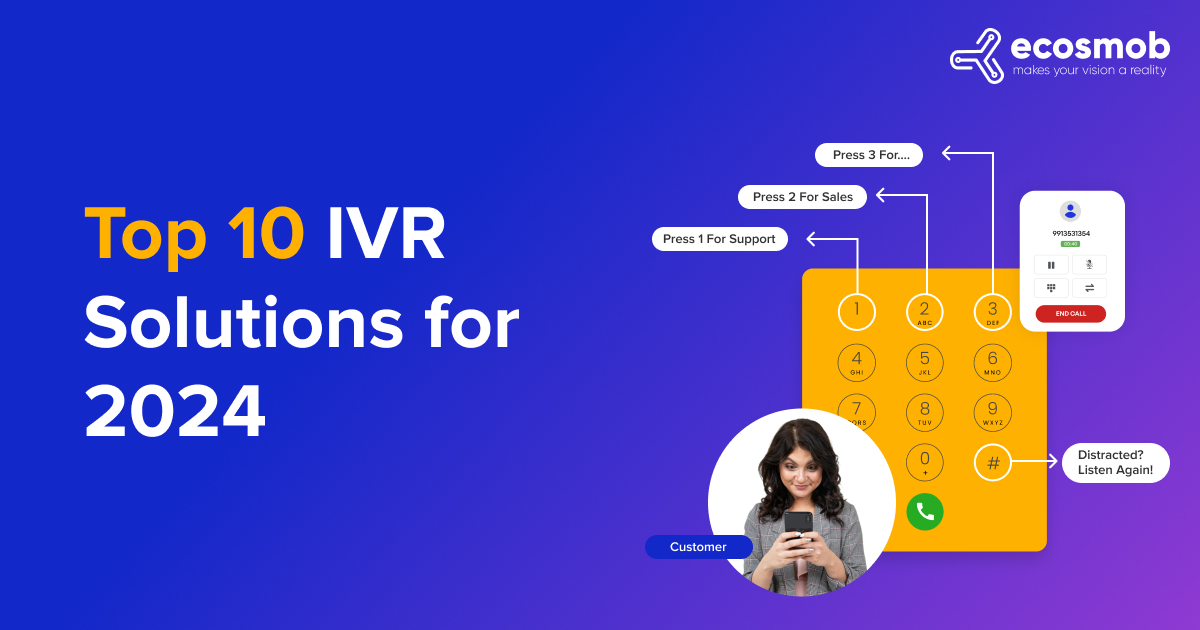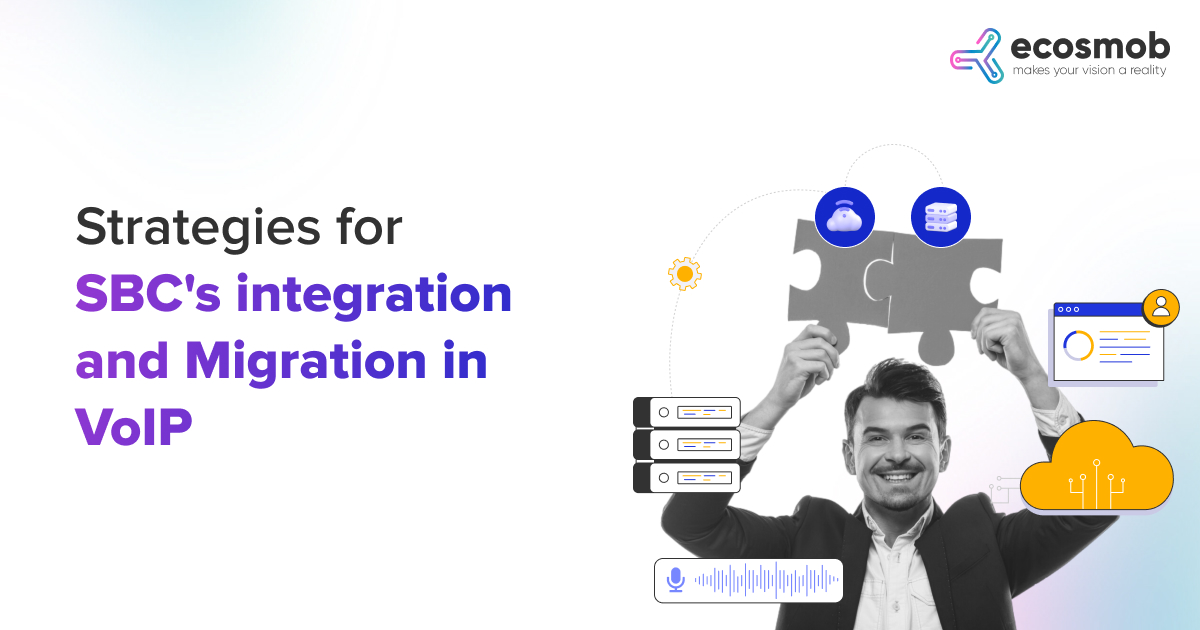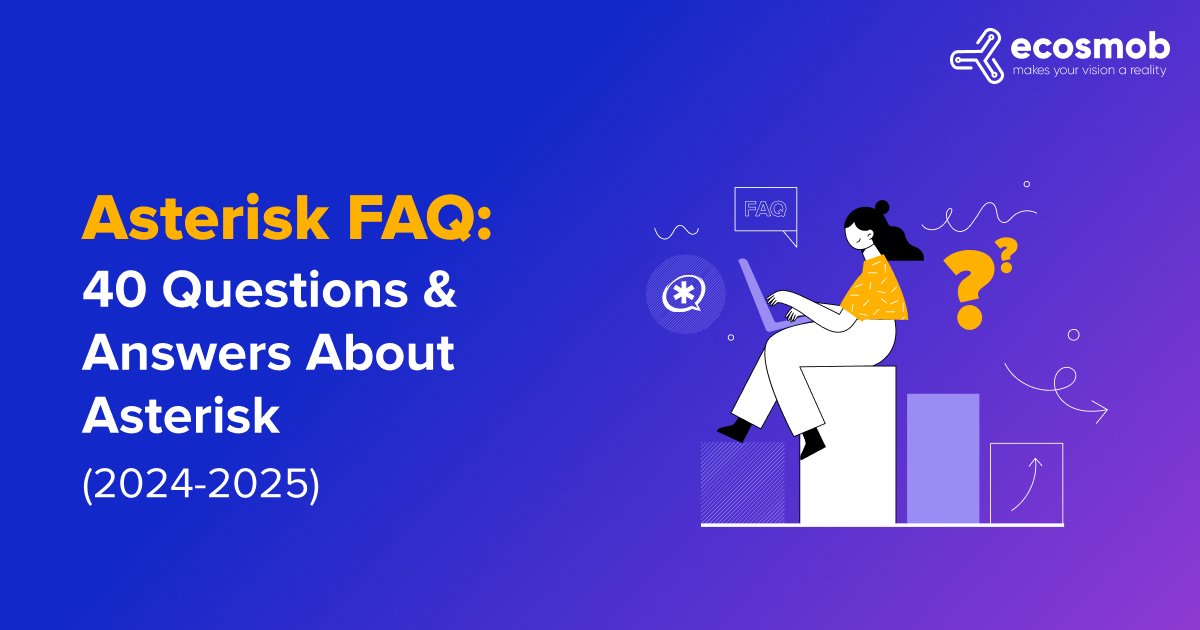Over the last two years, the pandemic has accelerated digital transformation, especially in virtual learning. As a result, the ed-tech sector has increasingly embraced VoIP phone systems as a crucial tool. Educational institutions around the globe are now leveraging these cloud communication systems for daily lesson planning and real-time interaction.
But why is this technology becoming so universally accepted? The key lies in its numerous benefits for virtual environments. Let’s delve into the top 10 benefits of using VoIP technology in education and see how it can be a game changer. Before moving further, let’s understand what a VoIP phone system is.
Trust me, it’s pretty cool stuff!
What is a VoIP Phone System?
A VoIP phone system is a modern technology that allows voice and multimedia communication. This technology has dramatically impacted the education sector, particularly in enabling virtual learning, but it has also found a home in enterprises and personal communication. VoIP integration gives birth to numerous advantages, from improved teaching experience to inclusion of students from remote areas through virtual settings.
According to Businesswire, by 2026, the market for corporate eLearning is anticipated to grow to $49.87 billion. Corporate trainers’ attention is now drawn to VoIP phone technology due to the growing popularity of remote learning.
Also Read: What Is VoIP to gain further insight into VoIP and how it works.
How to Use a VoIP Phone System for Virtual Learning?
VoIP facilitates features like texting, video calling, in-app chat and interfaces with well-known business apps. The ed-tech industry can utilize VoIP software for virtual learning in the following ways:
- Softphones for Virtual Learning: Trainers utilizing VoIP technology can leverage softphones to see team members’ availability, manage calls, communicate with coworkers, access work voicemails, and make rapid consultation calls with just one click. These features, powered by VoIP phone technology, facilitate seamless communication and collaboration in a virtual setting.
- Hosted VoIP Video Conferencing: Trainers can set up VoIP video conferencing for group training sessions or seminars. The virtual learning technology benefits team-building activities, group discussions, and student collaborative learning, offering a dynamic and interactive learning experience through VoIP-powered cloud communications.
- Screen Sharing with VoIP: Instructors can enhance their teaching methods in the virtual learning environment by turning their computer screens into interactive teaching resources using screen sharing. This feature, supported by VoIP software development, is perfect for software or process demonstrations and presentations, providing a visual learning environment that encourages engagement and comprehension.
- Video Calling for Enhanced Learning: Trainers can increase engagement and training efficacy through face-to-face interactions with learners using video calling features offered by hosted VoIP services. This approach, facilitated by VoIP solutions for remote learning, enriches the virtual classroom experience, making it more personal and interactive.
Transform Your Educational Institution with VoIP. Join the future!
10 Best Benefits of Ecosmob VoIP Solution for Virtual Learning
Many clients have praised Ecosmob’s VoIP solution to educators for its flexibility and ease of adaptation to the rapidly evolving virtual learning requirements. The hosted VoIP for schools offers numerous benefits, making it a favored choice for institutions looking to implement effective VoIP solutions in the education sector.
Let’s delve into the top ten benefits of Ecosmob’s VoIP phone system for virtual learning initiatives, highlighting how it supports educators and students in achieving their learning objectives through advanced VoIP phone technology and the UCaaS platform.
Cost-Effectiveness
VoIP has several benefits for virtual learning, chief among them being affordability. Traditional phone lines’ long-distance, maintenance, and installation costs can be very high. On the other hand, VoIP systems use the Internet for communication, significantly lowering overhead expenses. VoIP is a cost-effective solution that appeals to educational institutions, allowing them to use resources more effectively in other areas.
Scalability
Unmatched scalability is a feature of VoIP systems essential for educational environments with varying student enrollment. Schools can easily modify their services according to their current needs using hosted VoIP communication solutions, adding or deleting lines without the inconvenience of physical installations. This adaptability guarantees educational establishments can adjust their communication systems to expansion or seasonal fluctuations.
Enhanced Accessibility
VoIP systems significantly increase daily job efficiency, which is essential for learners and busy corporate trainers as it allows them to manage their workload effectively. Corporate training experts may easily communicate with colleagues, other departments, and distant teams thanks to key features, including interactive voice response systems, video conferencing, and call routing.
VoIP systems also have capabilities like auto-attendants, which connect calls straight to the correct department or person, thereby streamlining call handling. This functionality is crucial for prompt and effective communication. The system’s usefulness is increased by features including simple absence reporting and easy updates to emergency contacts.
Integration Abilities
VoIP phone systems stand out for their ability to integrate with other virtual learning technologies. You can easily incorporate VoIP with learning management systems, instructional software, and other digital tools using Unified Communications as a Service (UCaaS). This integration creates a unified learning environment that improves the learning process through the complementarity of communication methods and instructional resources.
Better Communication
VoIP technology has advanced significantly regarding call quality, guaranteeing clear communication. Lectures, conversations, and feedback sessions are made without annoying disruptions. It makes every connection efficient and fruitful.
Reliability and Continuity
The continuance of schooling depends critically on VoIP phone networks’ dependability. Reliability and low system downtime ensure the robust infrastructure and failover mechanisms commonly supporting hosted VoIP systems. Because of its dependability, instructional activities may continue uninterrupted—a crucial component of virtual learning where consistency is essential.
Advanced Functionalities
VoIP phone technology has several cutting-edge capabilities that can improve education delivery. Administrative duties are streamlined with features like auto-attendant, call forwarding, and voicemail to email. Concurrently, video conferencing and screen-sharing features in the educational sector make interactive teaching techniques possible, promoting a more dynamic and captivating educational process.
Personalization
VoIP phone systems include various customization possibilities that allow educational institutions to fit the technology to their requirements. VoIP enables a communication system that properly corresponds with educational objectives, whether creating voicemail messages for school closures or setting up distinct call routing for various departments.
Enhanced Security
VoIP Security is a significant concern in the educational industry, particularly with the growing volume of sensitive data exchanged digitally. VoIP systems use sophisticated security features, such as secured voicemail, secure audio and video conversations, and end-to-end encryption, to prevent unwanted access and guarantee the privacy of student and teacher data.
Sustainable Communication Method
Finally, the move to VoIP for online instruction is consistent with the increasing focus on environmental sustainability. Educational institutions may drastically reduce their carbon footprint by using internet-based communication and minimizing the demand for physical gear. This environmentally beneficial method helps the worldwide effort to lessen environmental effects and provides a good model for pupils.
Moving Forward with Confidence
Beyond just saving money, VoIP phone system usage in the education industry has several advantages. VoIP technology is essential to contemporary virtual learning settings because it improves accessibility and integration, ensures dependability, and promotes environmental sustainability. VoIP is a complete answer as educational institutions continue to work through the difficulties associated with distant learning, offering the resources required for efficient collaboration, communication, and instruction.
Educators and institutions who use VoIP solutions not only improve their communication infrastructure but also help create a more diverse, engaging, and long-lasting learning environment. However, if you are looking for VoIP technology, Ecosmob is your best choice. We will help you to significantly look ahead to the future of education that impacts how virtual classrooms are shaped, enabling everyone, wherever in the globe, to participate in engaging and delightful learning experiences.
Slash Your Educational Costs by 50% with VoIP!
FAQs
What is VoIP and how can it benefit virtual learning environments?
VoIP technology allows multimedia sessions and voice communications over the Internet. VoIP can significantly enhance the learning experience in virtual learning environments by facilitating real-time, interactive communication between educators and students. VoIP for virtual learning enables educators to conduct live lectures, host virtual office hours, and interact with students individually or in groups, fostering a more engaging and interactive educational experience.
What are the cost benefits of using a hosted VoIP phone system for virtual learning?
Hosted VoIP phone systems offer significant cost benefits for virtual learning by eliminating the need for expensive traditional phone lines and reducing the overhead associated with on-premise telecommunication systems. Since hosted VoIP services are managed off-site by a service provider, educational institutions can save on maintenance and upgrade costs.
How does UCaaS integrate with VoIP to support virtual learning?
Unified Communications as a Service integrates seamlessly with VoIP phone systems to provide a comprehensive communication solution that supports virtual learning. UCaaS combines video, messaging, voice, and file sharing, making it easier for educators and students to connect and collaborate. This integration allows for screen sharing, virtual whiteboards, and document collaboration, enhancing the virtual classroom experience.
Why is VoIP software for virtual learning considered essential for remote education?
VoIP software for virtual learning is considered essential for remote education due to its flexibility, accessibility, and rich features. It allows students and educators to connect from anywhere, using any device with internet access, breaking down geographical barriers to education. VoIP-powered cloud communications support synchronous learning activities, ensuring students receive a comprehensive learning experience outside the traditional classroom setting.
How is VoIP transforming the Education sector, particularly for schools?
VoIP transforms education by providing schools with a flexible, cost-effective, and efficient communication solution. Hosted VoIP services mainly offer schools a scalable and easy-to-manage platform that supports the diverse communication needs of educators, students, and administrative staff. This technology facilitates improved parent-teacher communication, enables remote learning opportunities, and supports school-wide announcements and emergency communications.
